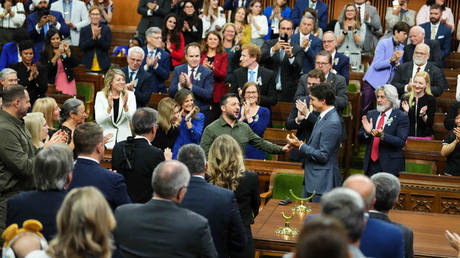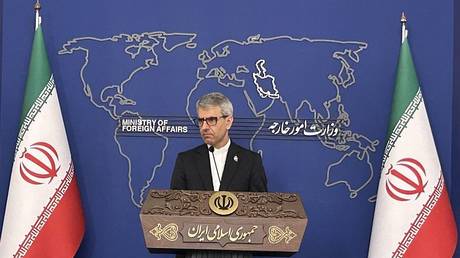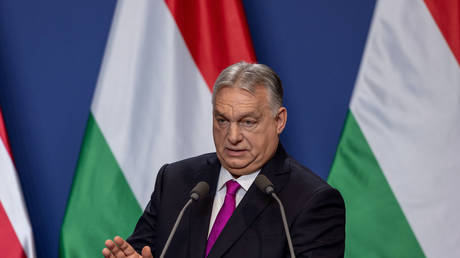
The resignation of the Canadian House speaker is not enough, Israel’s special envoy for combating antisemitism has told The Jerusalem Post
Ottawa has to come to terms with its “historic sin” of excluding Jews while harboring Nazis in the aftermath of the World War II, Israeli Special Envoy for Combating Antisemitism Michal Cotler-Wunsh told The Jerusalem Post (JP) this week.
A scandal erupted in Canada when parliament gave a standing ovation to Ukrainian Waffen SS veteran Yaroslav Hunka during a visit by Ukrainian President Vladimir Zelensky in late September.
Honoring the 98-year-old World War II Nazi collaborator has sparked international uproar and drawn condemnation from Russia, Poland and Jewish organizations. The incident led to the resignation of Canadian House of Commons Speaker Anthony Rota, who took sole responsibility for the Nazi veteran’s invitation.
Cotler-Wunsh, who started her job last month, argued that Rota’s resignation was not enough to remedy the situation. It was a “first step to acknowledging responsibility for this wrong,” she said. Now the envoy says Canada has to admit to a policy of not allowing enough Jews to cross its borders during and after the Holocaust while letting in Nazis after WWII.
“Nearly 2,000 documented Nazis… immigrated to the country following WWII and built lives, at the same time as the immigration policies towards Jewish victims was ‘none is too many’,” the Israeli official said.
Hunka’s being honored in parliament was “beyond embarrassing” at a time of “rising antisemitism,” Cotler-Wunsh stated, adding that such incidents demonstrate the need for “comprehensive education on antisemitism then and now, on the Holocaust and on the history of WWII.” The “very possibility” of such a scandal undermines Canada’s commitment to ensure tragedies like the Holocaust are never repeated, as well as its ability to “identify present threats,” she said.
Last week, Canada’s former justice minister, Irwin Cotler, called on the government to unseal documents related to suspected war criminals that fled to Canada after WWII. He particularly insisted that the results of a 1985 investigation into more than 800 such cases, known as the Deschenes Commission of Inquiry on War Criminals, should be made public.
“This was a failure here of indifference and inaction by successive Canadian governments, the result being that we became a sanctuary for Nazi war criminals, and no accountability would then ensue,” he told Canada’s CTV broadcaster over the weekend.
Canadian Immigration Minister Marc Miller also called on Ottawa to face up to its Nazi legacy, admitting that “there was a point in our history where it was easier to get in as a Nazi than it was as a Jewish person.”
Hunka was a volunteer in the 14th Waffen Grenadier Division of the SS, a military unit made up mostly of Ukrainians that served Nazi Germany. It committed numerous atrocities against Jews and Poles. In the wake of the scandal, Russia said it might request his extradition for war crimes. Polish Education Minister Przemyslaw Czarnek has called on Warsaw to do the same.




